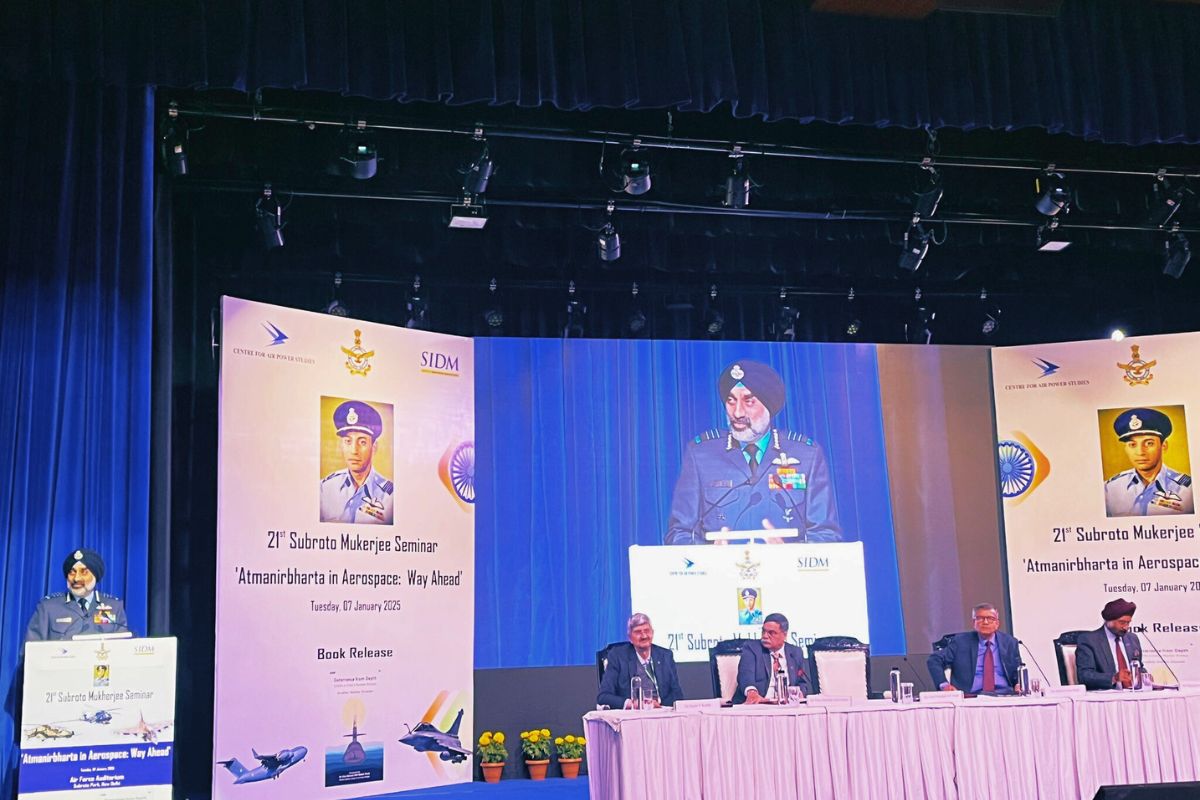NEW DELHI: Air Chief Marshal Amar Preet Singh, Chief of the Air Staff, addresses the 21st Subroto Mukherjee Seminar in New Delhi, expressing significant concerns over the delayed delivery of the indigenous Tejas fighter aircraft. Air Chief Marshal Singh emphasizes the necessity for increased private sector participation in defence production to enhance efficiency and meet the Indian Air Force’s operational requirements.

The Tejas program, managed by Hindustan Aeronautics Limited (HAL), has experienced multiple delays, affecting the IAF’s modernization plans. The Tejas Mk2 variant, intended to replace ageing aircraft and bolster India’s defence capabilities, has faced setbacks. Initially, the first prototype was expected by December 2023, with a maiden flight in 2024. However, as of December 2023, the rollout is rescheduled for late 2026 or early 2027, and the first test flight is now anticipated in 2028.
ALSO READ: India inducts 62 indigenous vehicles for UNIFIL peacekeeping mission
In his address, Air Chief Marshal Singh underscores the importance of private sector involvement in defence manufacturing. He asserts that introducing more private players would foster competition, leading to timely deliveries and technological advancements. “We need to have more private players into production so that companies would have fear of losing the tender,” he states, highlighting the role of competition in ensuring adherence to timelines and quality standards.
This perspective aligns with industry sentiments. R. Shankar Raman, Chief Financial Officer of Larsen & Toubro, a major Indian engineering firm, advocates for increased reliance on domestic private defence suppliers over state-owned entities and imports. He notes that private companies possess production capabilities that surpass current government procurement opportunities, suggesting that enhanced private sector engagement could lead to more efficient and advanced military technology development.
ALSO READ: Indian Navy inducts seventh MCA barge LSAM 14
The Indian government has initiated steps to involve private sector companies in defence projects. Plans are underway to identify Indian private sector partners to collaborate with HAL, aiming to increase production rates and reduce costs for exports under a “special purpose vehicle” scheme. HAL is also planning to form its own consortium to expedite the manufacturing process.
Air Chief Marshal Singh’s remarks at the seminar highlighted the critical need for the timely delivery of defence equipment to maintain the IAF’s operational readiness.
By advocating for greater private sector participation, he emphasizes a strategic shift towards a more competitive and efficient defence manufacturing ecosystem in India. This approach is expected to address current challenges and contribute to the nation’s broader “Make in India” initiative, aiming to bolster indigenous production capabilities and reduce dependence on foreign imports.










